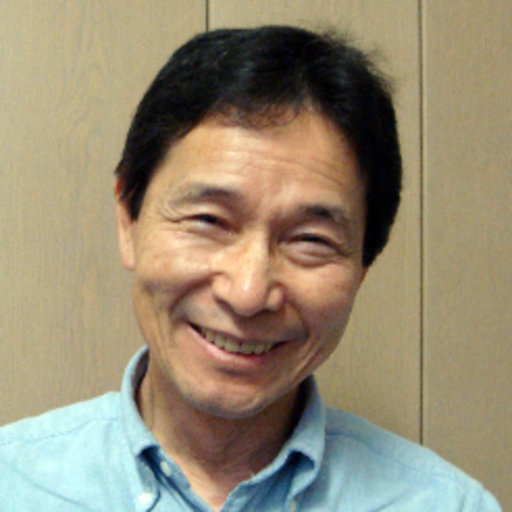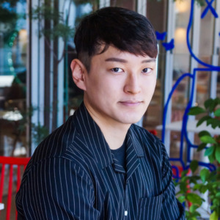[동아시아포럼] 늙어가는 일본 유권자
입력
수정
[동아시아포럼]은 EAST ASIA FORUM에서 전하는 동아시아 정책 동향을 담았습니다. EAST ASIA FORUM은 오스트레일리아 국립대학교(Australia National University)의 크로퍼드 공공정책 학교(Crawford School of Public Policy) 산하의 공공정책과 관련된 정치, 경제, 비즈니스, 법률, 안보, 국제관계 및 사회에 대한 분석 및 연구를 위한 플랫폼입니다.
저희 폴리시코리아(The Policy Korea)와 영어 원문 공개 조건으로 콘텐츠 제휴가 진행 중입니다.

야스오 타카오는 커틴대학교 사회과학 및 국제학과의 박사 과정 학생입니다.
기시다 후미오 일본 총리는 2023년 일본 국회 개회식에서 정책 연설을 통해 일본이 인구 위기로 인해 "사회적 기능을 유지할 수 없는 위기에 처했다"라고 선언했습니다. 일본의 평균 연령은 49세로 세계에서 두 번째로 높습니다.
2021년 중의원 선거에서 투표에 참여한 유권자의 평균 연령은 59세였습니다. 일본 선거 정치의 무게 중심은 납세자에서 연금 수급자로 이동했으며, 인구 고령화에 따라 노년층이 정책 입안자들에게 더 많은 정치적 압력을 행사할 가능성이 커지고 있습니다.
다수결 의사결정 모델은 이기적인 고령 유권자들이 다른 세대를 희생하더라도 자신들을 위해 점점 더 관대한 사회적 혜택을 지지할 가능성이 높다는 것을 시사합니다.
일본에서는 고령층의 투표율이 지속적으로 높아지고 있으며 꾸준히 증가하고 있습니다. OECD 연구에 따르면 55세 이상 유권자와 35세 미만 유권자 간의 투표율 격차는 25% 포인트로, OECD 평균인 12% 포인트에 비해 매우 높은 것으로 나타났습니다. 높은 투표율이 정치적 관심을 반영한다고 가정할 때 이는 고령 유권자가 이기적인 방식으로 정치에 영향을 미쳐 젊은 세대에 해를 끼친다는 것을 의미합니다.
하지만 아직까지 일본 고령 유권자의 이기심에 대한 명확한 증거를 발견한 연구는 없습니다. 2000년대 초 일본 국민은 지속 불가능한 수준으로 보이는 일본의 사회보장 지출에 대해 심각하게 우려하기 시작했습니다. 고령층은 다른 어떤 인구 집단보다 사회보장 문제를 투표에 중요한 요소로 고려하고 있습니다.
중위 투표자 모델은 일본의 고령층이 사회 보장 정책과 관련하여 다른 연령대보다 더 이기적일 것이라고 예측합니다. 그러나 일본 내각부와 후생노동성이 실시한 설문조사에 따르면 일본의 고령층은 이 모델에서 예측한 것만큼 이기적이지 않을 수 있습니다. 이 설문조사에 따르면 고령층 응답자들은 다른 연령층과 마찬가지로 사회 보장에 대한 정책적 제약을 지지하는 것으로 나타났습니다.
국제적으로도 일본 고령층은 다른 국가의 고령층에 비해 세대 간 형평성을 더 수용하는 것으로 나타났습니다. 내각부가 2005년, 2010년, 2015년, 2020년에 실시한 60세 이상에 대한 전국적인 설문조사에서는 정부 정책이 고령자보다 젊은 층을 우선시해야 하는지, 아니면 그 반대인지에 대해 질문했습니다. '젊은 층을 우선시해야 한다'는 응답자의 비율은 일본이 31%로 가장 높았으며 미국의 14%, 독일과 스웨덴의 17%에 비해 훨씬 높았습니다.
이러한 증거로 볼 때 자신의 이익을 극대화하려는 이기적 유권자는 일본 복지국가의 경우 적용하기 어려운 것으로 보입니다. 하지만 다른 요인도 작용할 수 있습니다.
사회보장에 대한 대중의 태도에 영향을 미치는 주요 요인은 인구통계학적 변화입니다. 2000년대 초 일본의 인구 위기에 대응하기 위한 사회보장 개혁의 시급한 필요성이 대중의 관심을 끌었습니다. 그 후 이어진 논쟁은 사회보장 혜택에 대한 고령층의 태도에 큰 영향을 미쳤습니다.
일본의 세대 간 정치적 태도에는 분명한 차이가 있습니다. 1947년에서 1949년 사이에 태어난 단카이 베이비부머 세대는 젊은 시절 일본의 급속한 경제 성장, 반체제 학생 운동, 산업공해, 베트남 전쟁 등 많은 격변을 경험했습니다. 이러한 경험은 평생 진보적인 정치관을 형성하고 개인의 이익보다 공동선을 우선시하는 경향으로 이어졌습니다. 2009년 총선에서 60~69세 유권자의 49%가 일본 민주당을 지지하여 보수적인 자민당을 대신하여 집권당이 되었습니다.
또한 일본의 고령층은 경제협력개발기구 국가 중 노동력 참여율이 가장 높습니다. 60~70세 일본 남성의 거의 절반, 70~75세 남성의 4분의 1이 여전히 노동력을 보유하고 있습니다. 일본 고령인구의 약 4분의 3이 비정규직으로 일하고 있으며 사회보장 문제를 투표에 중요한 요소로 고려하고 있습니다.
고령층 유권자는 고용 안정성이 떨어지더라도 젊은 세대에 해를 끼치는 이기적인 방식으로 정치에 영향을 미치지는 않습니다. 취업한 고령층은 특정 회사에 소속되어 있다는 안정감을 느끼기 때문에 회사 관계를 넘어 다른 사람들과 자신의 이해관계를 중심으로 조직을 구성하는 것을 꺼립니다. 또한 고용된 고령자는 자신의 이익에만 집중하기보다는 젊은 동료의 이익과 더 밀접하게 연관되는 경향이 있습니다.
일본의 공적 의무 장기요양보험은 노인들에게 큰 영향을 미쳤습니다. 운영 비용의 급격한 증가로 재정 안정성이 약해졌고, 이 보편적 제도는 노인들의 정치 참여에 대한 관심을 약화시켰습니다. 자격은 소득이나 가족 상황이 아니라 순전히 나이와 신체적 조건에 따라 결정됩니다.
일본의 공적 의무 장기요양보험 제도는 노인 인구에 큰 영향을 미쳤습니다. 그러나 제도를 유지하기 위한 운영 비용이 크게 증가하면서 재정 안정성 약화로 노인들의 정치적 활동이 위축될 수 있습니다. 이 보험의 가입 자격은 소득이나 가족 상황보다는 나이와 신체적, 정신적 건강만을 기준으로 합니다. 즉 65세 이상은 물론 노화 관련 질병을 앓고 있는 40~64세도 시설 또는 지역사회 기반 케어 서비스를 받을 수 있습니다.
일본의 자영업자 중 40%가 65세 이상이며 법적 정년이 없는 자영업자는 노인 소비의 이익보다 소규모 사업체의 보호를 우선시하는 경향이 있습니다. 즉 이들의 의견이 항상 고령층의 공통된 이익과 일치하지 않을 수 있습니다.
일본 유권자의 고령화가 반드시 젊은 세대에 피해를 주면서까지 노년층을 위한 정책에 초점을 맞추는 것은 아니지만, 고령화된 유권자층이 일본의 정책 결정과 정치적 결과에 어떻게 영향을 미치고 있는지에 대해서는 여전히 해결해야 할 많은 의문이 있습니다.
The problematic politics of Japan’s ageing electorate
Author: Yasuo Takao, Curtin University
Japan’s Prime Minister Fumio Kishida used a policy speech at the opening of the 2023 session of Japan’s parliament, the National Diet, to declare that Japan was ‘on the brink of not being able to maintain social functions’ due to the country’s population crisis. The country’s median age is 49 — the second highest in the world.
In the 2021 House of Representatives election, the median age of those who cast a vote was 59. The centre of gravity of Japanese electoral politics has shifted from taxpayers to pensioners, with the potential of the elderly exerting more political pressure over policymakers as the population ages.
The majoritarian decision-making model suggests that self-interested aging voters are likely to support increasingly generous social benefits for themselves, even at the expense of other generations.
In Japan, voter turnout has consistently been higher and is steadily increasing among older people. The age gap in Japan’s voter turnout is exceptionally high, with an OECD study finding a gap of 25 percentage points in voter turnout between voters 55 and older and voters under 35, compared with the OECD average of 12 points. Assuming that high turnout is a reflection of political interest, this implies that elderly voters influence politics in a self-interested way, to the detriment of younger generations.
But no studies have yet found clear evidence of such self-interest among Japan’s elderly voters. In the early 2000s, the Japanese public became seriously concerned about the country’s apparently unsustainable level of social security expenditure. The elderly, more than any other cohort of the population, consider social security issues to be important factors in casting their votes.
Japan’s older people may not be as explicitly self-interested as the median voter model would predict. A series of surveys conducted by Japan’s Cabinet Office and Ministry of Health, Labour and Welfare found that elderly respondents supported policy constraints on social security just as much as other age cohorts.
Internationally, the Japanese elderly are seen as more accepting of intergenerational equity than the elderly in other countries. Cross-national surveys on those 60 and older, conducted by the Cabinet Office in 2005, 2010, 2015 and 2020, asked whether government policy should prioritise younger people over older people or vice versa. Japan had the highest percentage — 31 per cent — of respondents agreeing that ‘young people should be prioritised’ —compared to 14 per cent in the United States and 17 per cent in both Germany and Sweden.
On this evidence, self-interested voters seeking to maximise their own benefits seems less applicable in the case of the Japanese welfare state. But other factors might also be at play..
The primary factor influencing public attitudes toward social security is demographic changes. In the early 2000s, the urgent need for social security reform in response to Japan’s population crisis captured public attention. The debate that followed played a significant role in influencing the attitudes of the elderly toward social security benefits.
There is undoubtedly a distinctive generational difference in political attitudes. The dankai baby boomer cohort born between 1947 and 1949 experienced turbulent events in their youth — Japan’s rapid economic growth, anti-establishment student movements, industrial pollution and the Vietnam War among them. These dankai-specific experiences bred life-long progressive political attitudes and a propensity to embrace the common good rather than sectional interests. In the 2009 general election a plurality of 49 per cent of voters aged 60–69 voted for the Democratic Party of Japan, which toppled the conservative Liberal Democratic Party.
Japan’s elderly cohort also has the highest labour-force participation among the OECD countries. Nearly half of Japanese men aged 60–70 and one quarter of those aged 70–75 are still in the workforce. About three-quarters of the Japanese elderly workforce work in non-regular positions and consider social security issues important to their votes.
Despite having less secure employment, elderly voters do not necessarily influence politics in a self-interested way to the detriment of younger generations. Employed elderly people continue to find security in belonging to a particular company, which dissuades them from organising around their own interests with others beyond their company ties. Employed elderly people are more likely to identify with the interests of their younger co-workers.
Japan’s public, mandatory long-term care insurance has had a significant impact on the elderly. The dramatic rise of the costs of its operation has undermined its fiscal stability and this universal system weakens the interest in political activism by the elderly. Eligibility is not based on income or family situation but purely on age and physical and mental health. Anyone 65 or older, plus those aged 40–64 with aging-related diseases, are eligible for institutional or community-based care.
Self-employed individuals, of whom 40 per cent are 65 or older and have no mandatory retirement age, hold opinions aligned with the protection of their small businesses, often against the interests of elderly consumption.
The aging of the Japanese electorate may not have led to politically charged generosity for the elderly at the expense of younger generations, but there are still many puzzles to unravel about how the elderly in Japan are affecting policy choices and political outcomes.





















